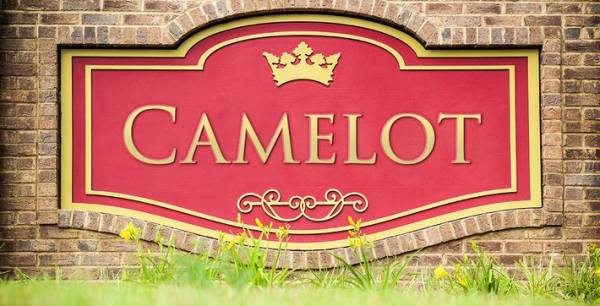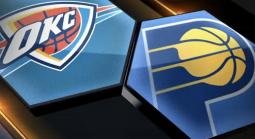Bookies Behaving Badly Part 6: Mark Del Popolo, Attorney at Flaw

He was a lawyer who thought he was above the law. In reality, though, he was an early e-scamster who gave both bookmaking and bunco a bad name.
He is Mark Del Popolo, a Syracuse, N.Y. attorney-turned-Internet bookie who dreamed of being a mobster and executed the first big online bookmaking scam of the 21st century.
He is also the subject of the latest installment of Gambling 911's ongoing series, "Bookies Behaving Badly," about the bumblers, bunglers, burglars, bandits, bilkers, bastards and other bad boys of bookmaking who have left their marks both online and off.
Del Popolo, who used the online moniker Mark Del, technically wasn't really a lawyer.
He did graduate from law school and he did pass the bar exam, but at the time he opened Camelot Sportsbook in Belize, the Central American country formerly known as British Honduras, in 2001, he had never actually practiced law.
Good thing for him, because he likely would have been disbarred, after the slimy shenanigans he pulled on online sports bettors throughout the world.
Camelot was a combination telephone and Internet sportsbook, meaning one could call the book and bet over the phone or one could bet online.
Camelot was also the trademarked name of a famous Broadway play, so by using it, Del Popolo, who should have been familiar with basic trademark law, was in violation.
That was his first faux pas, but not his last.
Del Popolo, the owner and operator of the book, had been a tout and a sports bettor who figured he could make more money on the other side of the counter--that is, taking bets instead of making them.
Forget that he had as much experience being a bookmaker as Donald Trump has of being a ballerina.
Faux pas No. 2.
Amazingly, though, despite the pilfered company name and the highly inexperienced head man, Camelot had early success, mainly due to its decision to advertise on Major Wager (www.majorwager.com), a Canadian sports betting portal that featured sports stats and betting advice, as well as ads for and links to offshore sportsbooks.
The most popular portal of its kind on the Internet at the time, Major Wager, run by the late Russ Hawkins, shilled heavily for Camelot and many of the portal's naive readers signed up with the fledgling book.
Faux pas No. 3 for Mark Del occurred when he declined to also advertise on a Major Wager competitor, Bettors World (www.bettorsworld.com), which was run from Connecticut by Brian Georgia and Jeff Brown.
The snub caused Bettors World to attack Camelot and World War III--the online, sports betting version of it, that is--was on.
First Bettors World posted an article about the impropriety of a licensed American attorney owning and operating an illegal Internet gambling operation--the U.S. Justice Dept. made it clear in 1998 that it was illegal for U.S. citizens to be involved and Del Popolo, as an officer of the court, was sworn to uphold the law.
Del Popolo then allowed his "Tony Soprano" side to surface as the delusional, Mafia wannabe, who's about as intimidating as Casper the Friendly Ghost, sent Georgia and Brown a threatening email that threatened violence against the pair.
Faux pas No. 4.
The now-famous email, which was widely posted at the time on Bettors World and other websites, stated: "I'll come and meet you guys at Brian's place in Connecticut and we'll settle this however you want. Hands, knives, pistols, it doesn't matter to me, you choose. There's two of you so it will be a fair fight. I'll even sweeten the pot for you. I'll bring 10 grand cash on me and it's yours if you can take it off me. Just tell me the day and time. I already know the location."
Georgia and Brown didn't accept the challenge, but they did consult their own attorneys, who told them to report the email to police and the New York State Bar Association.
Bettors World then posted a followup article about the controversy, revaling that as a member of the New York State Bar Association, Del Popolo violated the Bar's ethical standards by sending the email and was subject to immediate disbarrment.
The article noted that the New York State Bar Association's "Lawyer's Code of Professional Responsibility" requires that, "A lawyer should maintain high standards of professional conduct...and should be temperate and dignified and should refrain from all illegal and morally reprehensible conduct."
Morally reprehensible conduct?
Ol' Mark Del was just getting started.
It was clear from the email that Del Popolo was more than simply a Del Popoff--he was psychologically impaired.
"Delusional" would be the term a shrink would use.
First he thought he was a bookie.
Then he thought he was a mafiosi.
Then he thought he was God, able to get away with anything.
A year after opening Camelot, Del Popolo decided he didn't want to be a bookie any more.
Too much work.
Or whatever.
So he decided to become a crook.
And he simply stole all the money in Camelot's coffers.
Since Del Popolo never publicly revealed the depth of his deception--or the size of his score--there's no way to know for sure how much of his customers' monies he stole.
But it was a lot.
News reports at the time estimated the swindle at anywhere from half a million dollars to several million bucks.
One thing was clear, however, hundreds of his customers got stiffed and Mark Del lived up to his name--he made a mark out of every client.
It's hard to figure out what group's reputation was most stained by L'Affaire Del Popolo.
Lawyers once again were tarnished but that's nothing new.
Mobsters?
They never really had a good rep.
Neither did bookmakers, whose score on the scale is somewhere between politicians and used car salesmen.
Lawyers, mobsters, bookmakers.
Call it a three-way tie.
By Tom Somach
Gambling 911 Staff Writer
tomsomach@yahoo.com














